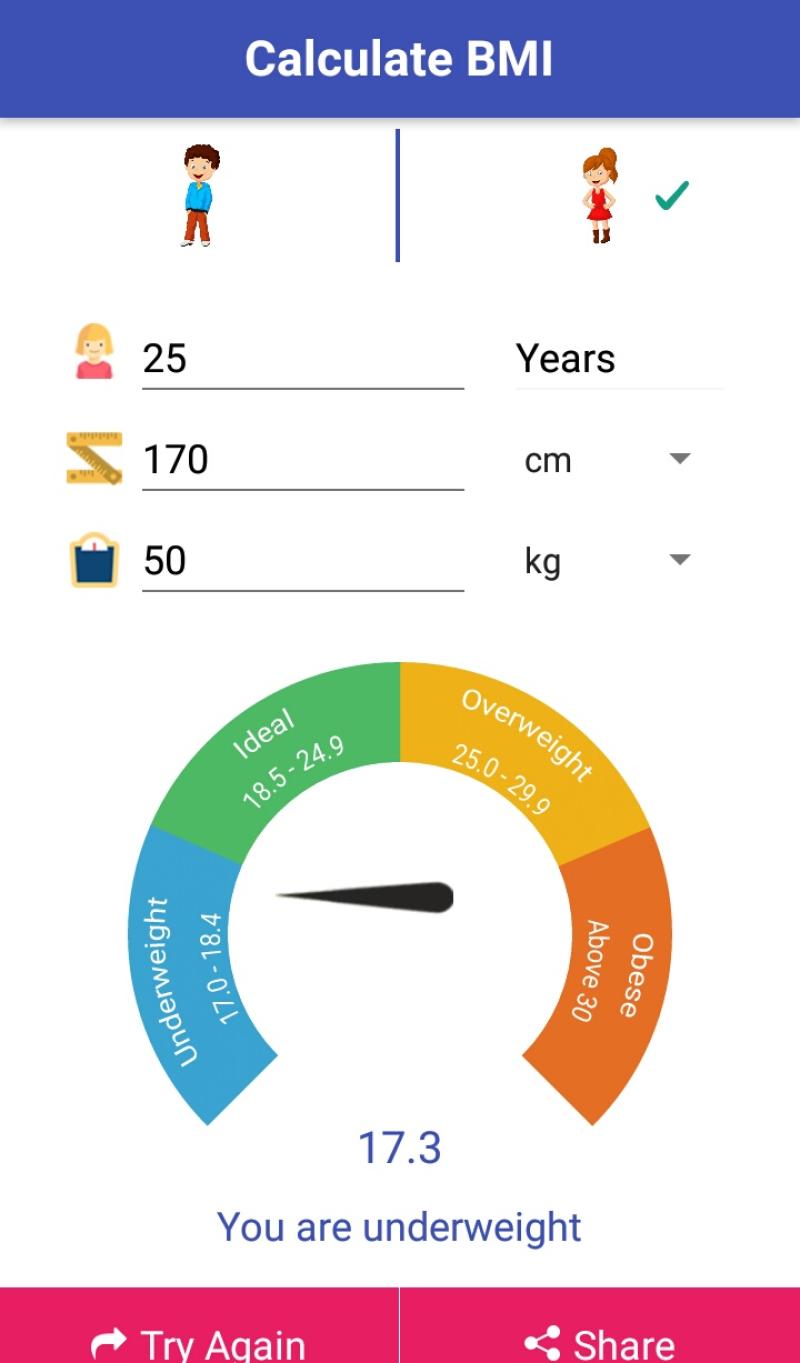How to calculate BMI?
You can calculate your Body Mass Index (BMI) by following a simple formula that takes into account your weight and height. BMI is a numerical value that provides an estimate of your body fat and helps classify individuals into different weight categories, such as underweight, normal weight, overweight, and obese. Here's how to calculate your BMI:
Metric System:
Measure Your Weight: Use a scale to measure your weight in kilograms (kg).
Measure Your Height: Use a stadiometer or ruler to measure your height in meters (m).
Calculate BMI: Use the following formula to calculate your BMI:
BMI = weight (kg) / (height (m) * height (m))
Imperial System:
Measure Your Weight: Use a scale to measure your weight in pounds (lb).
Measure Your Height: Use a ruler or measuring tape to measure your height in inches (in).
Calculate BMI: Use the following formula to calculate your BMI:
BMI = (weight (lb) / (height (in) * height (in))) * 703
Here's an example using the metric system:
Suppose your weight is 70 kilograms (kg), and your height is 1.75 meters (m):
BMI = 70 kg / (1.75 m * 1.75 m) = 22.86
And using the Imperial system:
Suppose your weight is 150 pounds (lb), and your height is 66 inches (in):
BMI = (150 lb / (66 in * 66 in)) * 703 = 24.22
Once you have calculated your BMI, you can refer to standard BMI categories to determine your weight status:
- BMI less than 18.5: Underweight
- BMI 18.5 to 24.9: Normal weight
- BMI 25 to 29.9: Overweight
- BMI 30 or greater: Obese
Keep in mind that while BMI provides a general idea of whether your weight falls within a healthy range, it doesn't take into account other factors such as muscle mass, body composition, or overall health. Therefore, it's essential to consider BMI as just one of many tools for assessing your health, and it's always a good idea to consult with a healthcare professional for a comprehensive evaluation.
1. Calculating BMI: A Guide to Body Mass Index
Body Mass Index (BMI) is a measure of body fat based on height and weight that applies to adult men and women. It is calculated by dividing weight in kilograms (kg) by height in meters (m) squared. A high BMI can indicate high body fatness.
Formula:
BMI = kg/m²
Interpreting BMI:
BMI is interpreted using the following categories:
| BMI Category | BMI Value | Health Risk |
|---|---|---|
| Underweight | Less than 18.5 | Increased risk of nutritional deficiencies and osteoporosis |
| Normal weight | 18.5 to 24.9 | Lowest risk of developing chronic diseases |
| Overweight | 25 to 29.9 | Increased risk of developing chronic diseases such as type 2 diabetes, heart disease, and stroke |
| Obesity | 30 or more | Increased risk of developing serious chronic diseases |
How to Determine Your BMI for Health Assessment
To determine your BMI, follow these steps:
Measure your height in centimeters (cm). Stand straight against a wall and use a measuring tape to measure the distance from the top of your head to the floor.
Measure your weight in kilograms (kg). Step on a scale and record your weight.
Calculate your BMI using the formula BMI = kg/m². Divide your weight in kilograms by your height in meters squared. For example, if you weigh 70 kg and are 1.7 meters tall, your BMI would be 24.2.
Interpret your BMI using the BMI categories table. Find your BMI category and understand the associated health risks.
Body Mass Index (BMI) Calculation and Interpretation
BMI is a simple and widely used tool for assessing body fatness and associated health risks. However, it is important to note that BMI is not a perfect measure of body fatness and should not be used as the sole indicator of health. BMI does not take into account muscle mass, bone density, or individual differences in body composition.
For a more accurate assessment of body fatness, it is recommended to consult with a healthcare professional who can use other methods, such as skinfold measurements or body fat calipers, to measure body fat percentage.
It is also important to remember that BMI is only one factor to consider when assessing health risks. Other factors, such as diet, exercise habits, and family history, also play a significant role in overall health.













